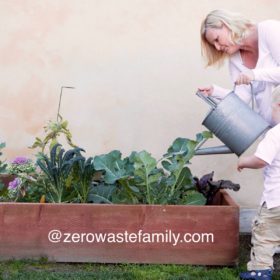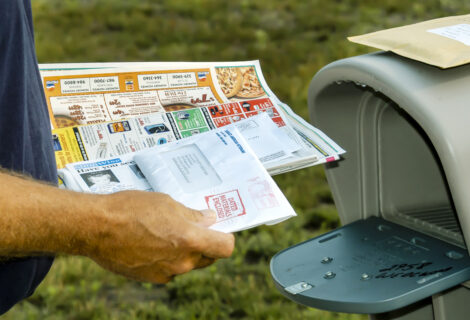Eco-Friendly Road Trips: How to Travel Sustainably with Your Family
Planning your route, opting for a fuel-efficient vehicle, and minimizing waste are key ways to pull-off an eco-friendly family road trip. By prioritizing sustainability on the road, you’ll not only reduce environmental impact, but also foster meaningful connections with nature. And, involving your kids in these planet-first practices is also an opportunity to instill a lifelong commitment to environmental stewardship, ensuring they value nature and strive to protect it for generations to come.

Plan your route
Planning your route wisely is key to optimizing your journey for fuel efficiency, reducing carbon emissions, and minimizing your overall environmental impact. So, for example, use eco-routing apps or websites specifically designed to help you find the most fuel-efficient route to your destination. These apps consider factors such as traffic congestion, road conditions, elevation changes, and fuel consumption rates to suggest the most environmentally-friendly route. Waze, for instance, is a popular navigation app with an “eco-drive” option that determines the most sustainable route, with the goal of minimizing fuel consumption and pollution. Alternatively, MapQuest also offers a “Fuel Cost Estimator” feature that calculates the fuel consumption and cost of various routes. By comparing fuel costs, you can choose the most fuel-efficient route to minimize carbon emissions and save money.
Moreover, eco-routing apps are also a great way to avoid heavy traffic — something which has the potential to significantly increase your fuel consumption and emissions over the course of your road trip. By providing you with real-time traffic updates, alternative routes that avoid congestion, and the best travel times outside of peak traffic hours, navigation apps can help you save time, as well as reduce your environmental footprint, by choosing the most eco-friendly route available.
Choose a fuel-efficient vehicle
If you’re renting a car, inquire about fuel-efficient options — like hybrid or electric models — that can help minimize your carbon footprint and reduce fuel expenses during your trip. In particular, hybrid vehicles combine a traditional gasoline engine with an electric motor, resulting in better fuel efficiency compared to conventional cars. Technologies like regenerative braking work to recharge the battery and reduce reliance on gasoline. And, with better fuel economy, hybrid cars can also help you save money on fuel expenses over the course of your trip. Notably, it costs around $720 per year to drive a hybrid, compared to $1,548 for a gas-powered vehicle, according to the U.S. Department of Energy.
Electric cars, on the other hand, are powered entirely by electric motors, therefore completely eliminating tailpipe emissions. Keep in mind, however, if using an electric vehicle, you’ll also need to consider the location of charging stations along your chosen route to ensure sufficient battery range and uninterrupted travel. So, when researching vehicle options before your trip, be sure to compare and contrast fuel efficiency ratings of different models. Look for hybrid cars with high miles-per-gallon (MPG) ratings or electric vehicles with long ranges. It’s also important to choose a vehicle size that suits your family’s needs, while still prioritizing fuel efficiency. Smaller hybrids or electric cars are typically more fuel-efficient for city driving, while larger hybrids like SUVs offer more space for passengers and luggage.
Minimize waste
Packing reusable water bottles, coffee mugs, food containers, and utensils for each family member is essential to minimize single-use plastic waste throughout your road trip. Similarly, prepare snacks and meals at home beforehand, and store them in reusable containers — this reduces the need for single-use packaging and helps you avoid excessive food packaging waste on the road. Homemade granola bars, veggie sticks with hummus, and mason jar salads with layers of veggies, grains, and dressing are some delicious and filling options. And, when you do need to go shopping for groceries or souvenirs, for instance, be sure to bring reusable shopping bags, so as not to accumulate plastic bags during your trip. It’s also wise to follow Leave No Trace principles when exploring nature. These guidelines emphasize practices such as proper waste disposal, respecting wildlife, minimizing campfire impacts, and leaving natural areas undisturbed for future generations to enjoy.
Planning routes wisely, using fuel-efficient vehicles, and minimizing waste are vital ways to travel sustainably with your family. By making conscious choices and embracing eco-friendly practices, you can enjoy a more responsible and fulfilling family road trip.
For more zero waste traveling tips check out this post and how to stay healthy when traveling here









